Rural young feminists defend Motagua River through artivism
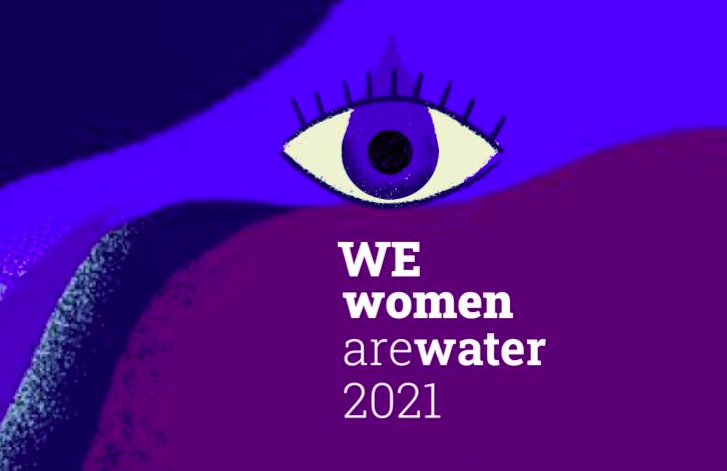
The Motagua River, one of the largest in Central America, starts its 500-kilometer journey from Guatemala’s Western Highlands. Along the way, it collects the waters of 29 major rivers and crosses 14 of the country’s departments, including the northeastern territory of Izabal, before it drains out into the Caribbean Gulf of Honduras. Water is not the only thing it carries; with it flows garbage, industrial waste and sewage.
Nickel mining, deforestation and illegal logging in Izabal are further contributing to the contamination and disappearance of the river’s water. The ecosystems the river fed — their unique flora, fauna and local communities — can no longer depend on the Motagua in the same way.
Izabal is an area with one of the highest deforestation rates in the country, according to studies by the project Dinámica de la Cobertura Forestal. Massive deforestation has made way for cattle ranching and has lowered Guatemala’s ability to mitigate the effects of climate change in a region highly vulnerable to extreme weather events. The forest acts as protection for the riverbanks against natural disasters, and without it communities lose one of their most important barriers. When tropical storms Eta and Iota hit Guatemala in November 2020, Izabal was one of the worst hit regions and 2.5 million people were affected countrywide.
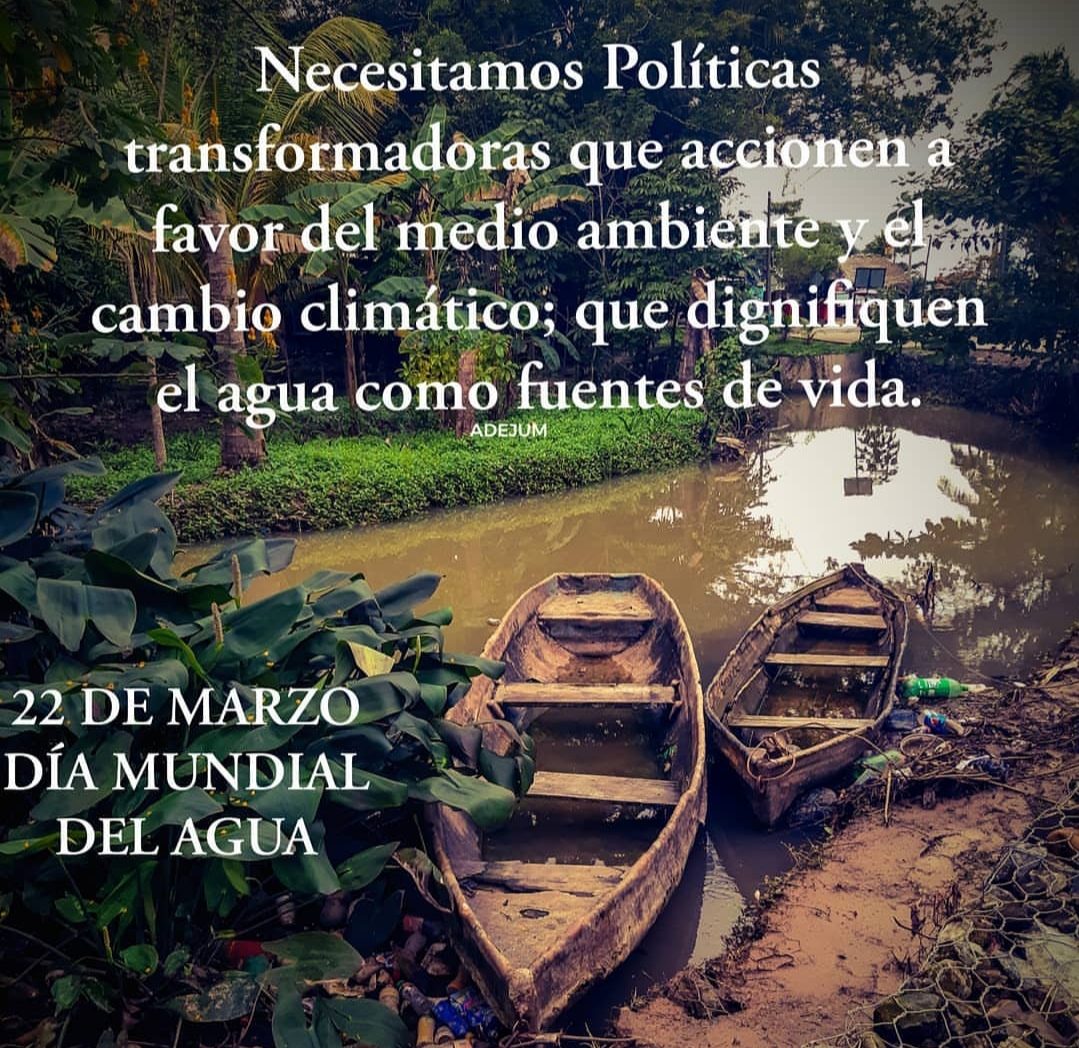
The Indigenous and rural communities of this territory, whose economic well-being and health are tied to the Motagua River, have defended their culture and identity for centuries against exploitation and dispossession. In Izabal, there is persistent resistance from the towns to hydroelectric and mining megaprojects. Adejum is one group of young rural feminists that’s continuing the fight.
These young feminists know their territory like no one else and are determined to show that solutions don’t mainly come from urban centers. Adejum works to train and increase the participation of young people in decision-making and governance spaces in what is a struggle for inclusiveness, especially in the environmental management of their territory. Their message centers around care for Motagua and for the bodies of rural women and youth.
For the protection of the Motagua River, Adejum has carried out community organizing events — like workshops in public parks, an itinerant reading circle and collective walks to the riverbank — to make the population more aware of the importance in defending the territory and to articulate joint actions relating to territorial ecofeminism.
They consider art a tool for falling in love with rurality. Through artivism (or artistic activism), Adejum has created spaces for popular education with other young people from their community. The group has experimented with participatory methodologies and photographic projects with young people so the youth can rediscover their ecosystem from their own point of view. Adejum’s short film on environmental protection also won second place in a national short film competition in the category of non-professional shorts.
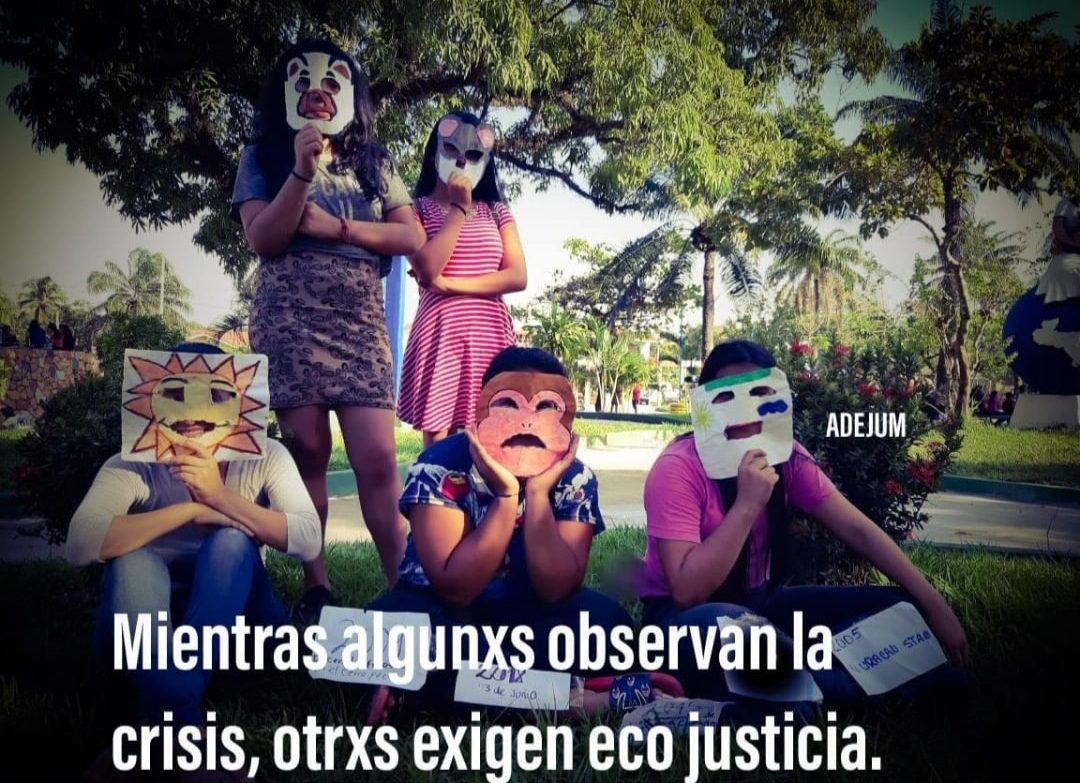
Because these communities share a border with Honduras, where there is already a high level of policing due to illegal migration and smuggling, environmental and human rights defenders are more vulnerable and persecution for their work continues to grow. The community defenders of Motagua are being threatened for opposing logging and open-pit nickel mining. In particular, young rural women feel unprotected by the state and fear persecution for their environmental advocacy and the physical and emotional gender-based violence they experience for seeking the leadership of young people in the community. Neither bodies nor territories feel safe.
Adejum is calling for the international community to pay greater attention to the current situation of the Motagua River and the communities whose lives are intertwined with its waters. They also demand that the municipal government:
- Take responsibility to enforce the law against pollution and penalize mining companies and illegal groups that continue to deforest and pollute;
- Effectively support youth leadership with more and better public spaces for education, training and resources, and open up spaces for participation in the environmental governance of the territory;
- Generate strategies for the protection of community leaders.
Adejum is a grantee partner of FRIDA | The Young Feminist Fund, who is part of the GAGGA network. You can learn more about Adejum by following their Facebook page and Instagram.
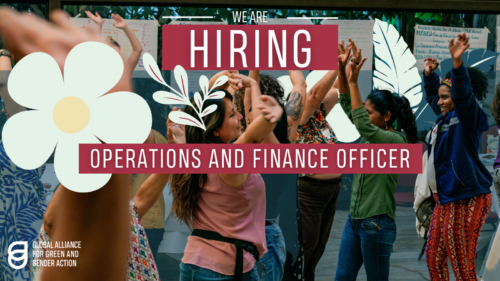
We Are Hiring: Operations and Finance Officer!
DEADLINE EXTENDED! Are you passionate about ensuring efficient financial management and operational excellence to support transformative work in climate, environmental,…
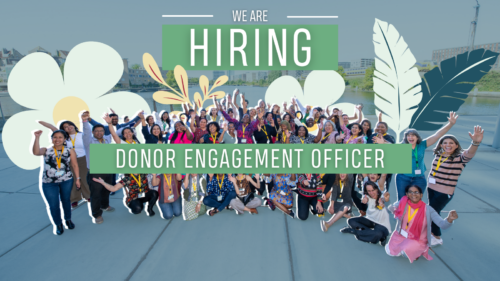
We Are Hiring: Donor Engagement Officer!
DEADLINE EXTENDED! Are you passionate about cultivating relationships and securing funding to support transformative work in climate, environmental, and gender…

Welcoming Anamika Dutt As GAGGA’s Planning, Monitoring, Evaluation & Learning (PMEL) Officer!
Anamika Dutt is a feminist MEL practitioner from India. Anamika believes that stories of change and impact are best heard…
Subscribe to our newsletter
Sign up and keep up to date with our network's collective fight for a gender and environmentally just world.
